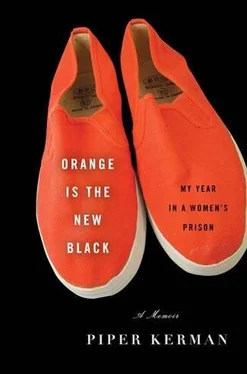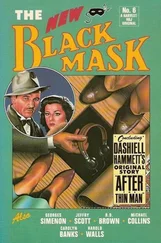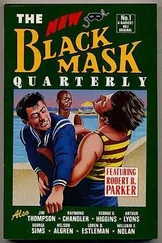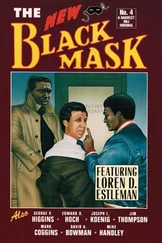Once you had secured your shower stall, you faced a moment of truth. Some women would disappear behind the stall’s plastic curtain still fully clad in their muu-muus, out of modesty; others would whip off their clothes in front of everyone and climb in and out unabashed. A handful would shower with the curtain open, giving everyone a show.
At first I was among the former, but the water was always freezing initially, and I would yelp as it rained down on my naked skin. “What’s going on in there, Kerman?” someone would inevitably joke. “Piper’s getting busy!” After a while I became convinced that the Linda Blair rape scene in Born Innocent was never going to be re-created in the Camp, so I took to starting my shower before I got in, checking to see that it was at least lukewarm before I whipped off my muu-muu and jumped in. This won me a couple of fans, notably my new neighbor Delicious, who shouted with surprise, “P-I Piper! You got some nice titties! You got those TV titties!! They stand up on they own all perky and everything! Damn!”
“Um, thanks, Delicious.”
There was absolutely nothing threatening about Delicious’s attention. In fact, it was mildly flattering that she noticed me at all.
All cleaning in the Camp was highly ritualized, including the all-hands-on-deck Sunday-night scrubdown of our cubicles. One day a week B Dorm’s laundry was done for us (laundress was a prison job, captained by an elderly woman everyone called Grandma), and so the night before, I’d stuff my bag with sweat socks and a packet of laundry soap. Natalie would wake me at five-fifteen before the laundry opened so that I could get mine in before everyone else. Otherwise I’d have been part of the usual stampede of half-asleep women in the still-dark hallway getting in line to drop off their laundry bags. Why the urgency? Unclear. Did I need my laundry back in the early afternoon, as opposed to the evening? No. I found myself participating in the meaningless rituals of avoiding the laundry rush because prison is all about waiting in line. For many women, I realized, this was nothing new. If you had the misfortune of having the government intimately involved with your life, whether via public housing or Medicaid or food stamps, then you’d probably already spent an insane amount of your life in line.
I had twice made the monthly pilgrimage out to the warehouse to collect my eight packets of laundry soap powder from the unsmiling inmate in charge of issuing them. Laundry soap days happened once a month-on one appointed weekday all the “evens” would troop out to the warehouse during the lunch hour to claim their eight packets; the next day the “odds” would go. The prisoners who worked in the warehouse, a secretive bunch, took this enterprise very seriously. They treated soap days as an invasion of their turf and would all sit or stand silently while other prisoners lined up to collect the one handout that the prison gave to prisoners.
I never understood why laundry soap was the one free thing provided to us (other than our toilet paper rations, which were passed out once a week, and the sanitary napkins and tampons stocked in the bathroom). Laundry soap was sold on commissary; some women would buy Tide and give away their eight free soap packets to others who had nothing. Why not soap to clean your body? Why not toothpaste? Somewhere within the monstrous bureaucracy of the Bureau of Prisons, this all made sense to someone.
I CAREFULLY studied long-timers like Natalie. How had she done it? How had she served eight years in this rotten place with her grace, her dignity, her sanity intact? What had she drawn on to make it through, with only nine months until her release to the outside world? The advice I got from many quarters was “do your time, don’t let the time do you.” Like everyone in prison, I was going to have to learn from the masters.
I settled into rituals, which improved the quality of my existence immeasurably. The ritual of coffee-making and drinking was one of the first. The day I arrived a brassy former stockbroker had given me instant coffee in a foil bag and a can of Cremora. Larry, an insufferable coffee snob, was insanely particular about brewing methods, preferring a French press. I wondered what he would do if he was locked up-would he give up coffee entirely, or adapt to Nescafé? I would make my cup in the morning at the temperamental hot water dispenser and carry it down to the chow hall for breakfast.
After our late-afternoon dinner, Nina would often appear, inquiring whether I wanted to “get coffee.” I always did. We would mix up our cups and find seats where the weather allowed, sometimes sitting out behind A Dorm looking south toward New York. We would talk about Brooklyn, her kids, Larry, and books; we’d gossip about other prisoners; I would ask her my endless questions about how to do time. Sometimes Nina wasn’t in the mood to get coffee. I’m sure that my tagalong tendencies got old for her, but when I needed her wisdom, she was always there.
I TORE through every book I received, stayed out of the TV rooms, and watched with envy as people went off to their prison jobs. One could rearrange a footlocker only so many ways. I suspected work would help slaughter time. I tried to figure out who did what, and why some of them got to wear nifty army-green jumpsuits. Some prisoners worked in the Camp’s kitchen; others, working as orderlies, washed floors and cleaned the bathroom and common areas. The benefit of the orderly jobs was that you worked only a few hours a day, usually alone. A handful of prisoners worked as trainers for seeing-eye dogs with whom they lived 24-7, a program tragically known as Puppies Behind Bars. Some women worked in CMS (Construction and Maintenance Services), getting on a bus every morning to do jobs like plumbing and grounds maintenance. An elite crew trooped off to the warehouse, the stopping point for everything that either entered or left the prison, and where the contraband opportunities were rich.
Certain prisoners worked in Unicor, the prison industries company that operates within the federal prison system. Unicor manufactures a wide range of products that are then sold within the government for many millions of dollars. In Danbury the FCI made radio components for the army. Unicor paid significantly more than other prison jobs, over one dollar an hour as opposed to the regular base pay rate of fourteen cents an hour, and the Unicor workers were always dressed in pressed, tidy uniforms. Unicor people would disappear into a large warehouse building that always had semis parked outside. Some girls enjoyed silent flirtation with the truckers, who looked nervous but intrigued.
Rosemarie had secured herself a job in the Puppy Program, which was housed in A Dorm. That meant she lived with a Labrador retriever that was being trained to be a seeing-eye dog or a bomb-sniffer. The dogs were beautiful, the little puppies adorable. A warm, squirming lapful of golden puppy, licking and biting and unabashedly happy, made despair dissolve no matter how hard you were hanging on to it.
I wasn’t eligible for Puppies Behind Bars-my fifteen-month sentence was too short. Initially disappointed, on reflection I decided it wasn’t necessarily a bad thing. The program attracted some of the most obsessive-compulsive women in the Camp, and their OCD could really come into full flower as they trained the dogs, forming intense bonds with their canine companions and feuding with their human neighbors. Rosemarie quickly became consumed with the training of her dog, Amber. I didn’t mind because she would usually let me play with the puppy, which some of her fellow dog trainers frowned upon.
The doyenne of the Puppy Program was Mrs. Jones, the only person in Camp that anyone called “Mrs.” Mrs. Jones had been in prison for a long time, and it was obvious. A grizzled, steel-haired Irish woman with enormous breasts, she had been down for almost fifteen years on a drug sentence. Her husband was said to have beaten her viciously on the outside and to have died in prison. Good riddance to bad rubbish. Mrs. Jones was a little crazy, but most prisoners and guards gave her more leeway than they might extend to others-after fifteen years, anyone would have gone a little crazy. People liked to sing a few bars of “Me and Mrs. Jones” from time to time. Some of the younger women from the street called her the OG, Original Gangster, and she loved that. “That’s me… the OG! I’m crazy… like a fox!” she would cackle, tapping her temple. She seemed to lack any filter and would say exactly what she thought at any time. Although interacting with Mrs. Jones required patience, I liked her, and her candor too.
Читать дальше












